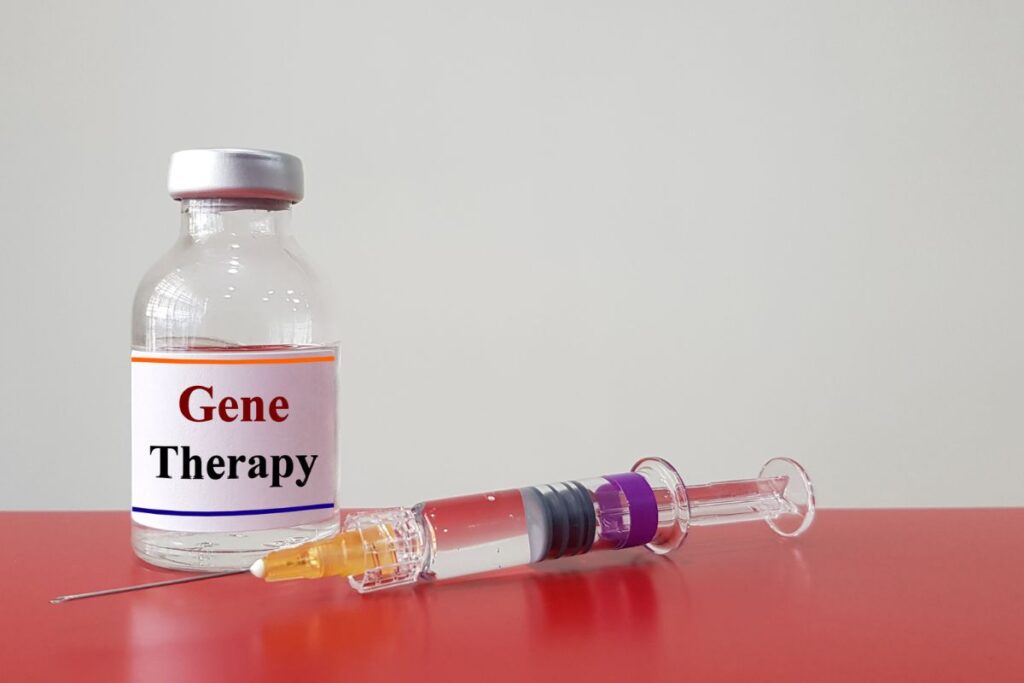
Gene therapy is no longer a distant fantasy -– it’s becoming an accepted reality in the medical field. Gene therapy has already been used to treat various inherited conditions, and we may soon see treatments for more complex diseases like cancer utilizing this technology. The rapid advances come with ethical implications that must be considered before implementing these treatments on humans. This article discusses the ongoing debate surrounding the ethics of using gene therapies to treat diseases and what guidelines must be established. Continue reading as Johanna Altman dives into this essential conversation about gene therapy’s ethical implications.
Gene Therapy and its Uses
Gene therapy is an emerging field in the medical world that has shown tremendous promise in treating various inherited and acquired diseases. Essentially, gene therapy involves delivering genetic material into a patient’s cells to correct a disease-causing genetic defect or to introduce a desired trait. This can be accomplished through different methods, including viral vectors, electroporation, and CRISPR-Cas9 gene editing. Gene therapy has the potential to cure diseases that were previously thought to be incurable. While the field is still in its early stages, it holds great promise for the future of medicine.
Ethical Considerations to Account for When Administering Gene Therapy Treatments
As medical technology advances, gene therapy treatments become more common. This treatment involves changing a person’s DNA, which raises ethical concerns that must be considered when administering these treatments. One of the most pressing issues is ensuring that informed consent is obtained from patients before any gene therapy treatment. Additionally, gene editing techniques raise concerns about the potential for unforeseen consequences or the creation of “designer babies.” There is also the issue of access to gene therapy treatments, as they can be prohibitively expensive for many individuals. Johanna Altman reminds us that ethical considerations require careful consideration and discussion to ensure the responsible use of gene therapy treatments.
Potential Benefits vs Risks of Using Gene Therapy
Gene therapy is an exciting field with the potential to revolutionize medical treatment. Replacing or editing genes could cure genetic diseases that have long been considered incurable. The benefits of gene therapy are clear, but it’s not without risks. There have been concerns about the safety of gene therapy, including the possibility of unintended consequences and long-term effects that we don’t fully understand. However, many researchers believe that with proper oversight and responsible implementation, the benefits of gene therapy far outweigh the risks. With continued research and development, gene therapy could bring life-changing treatments for patients with various genetic disorders.
Regulatory Bodies’ Role in Regulating the Use of Gene Therapy
Regulatory bodies have a role in ensuring gene therapy’s safe and effective use. As this relatively new medical treatment continues to evolve, it’s important for regulatory agencies to stay up-to-date with the latest advances and to provide appropriate guidance to researchers and clinicians. By vetting new therapies, overseeing clinical trials, and monitoring existing treatments’ ongoing safety and efficacy, regulatory bodies can help ensure that gene therapy fulfills its potential to revolutionize healthcare without compromising patient safety. Through ongoing collaboration and communication with other stakeholders, such as patients, healthcare providers, and the biotech industry, regulatory bodies can play a vital role in shaping the future of gene therapy.
Review of Various Opinions Regarding the Use of Gene Therapy
Gene therapy sparks various opinions and ideas among individuals in the scientific community. Some believe gene therapy is key to curing countless diseases and genetic disorders, while others remain skeptical about this technique’s potential risks and ethical considerations. Despite the varying opinions, most agree that gene therapy warrants further study and exploration to fully understand its capabilities and limitations. As research progresses, it will be interesting to see how the conversation regarding gene therapy evolves and what discoveries are made along the way.
Impact on Society and Future Generations if Gene Therapy is Widely Used
The world of medicine has advanced greatly in recent years, and one of the most fascinating developments has been in gene therapy. This revolutionary new technique has the potential to cure genetic disorders and improve the health and well-being of millions around the globe. However, as with any major scientific advancement, there are concerns about the long-term impact of gene therapy on society and future generations. While widespread use of the technology could greatly benefit society, some fear poorly regulated applications could lead to unforeseen consequences. Consider the ethical implications of this powerful new tool and take steps to ensure its use is properly monitored and regulated for the benefit of both present and future generations.
Final Thoughts
Gene therapy is undoubtedly a hot topic ripe with philosophical and ethical considerations. Its potential to produce treatments directly targeting illnesses and disorders presents an exciting opportunity. Yet, due to the complexity and unpredictability of genetic material, researchers must exercise caution to ensure the safety of both the individuals being treated and future generations. Moreover, it will be crucial for regulatory bodies to develop meaningful initiatives that provide needed oversight. It’s clear that with respect comes responsibility—only time will tell if this revolutionary technology can help shape humanity or bring about its own set of unintended consequences. We have reached a pivotal moment in human history when medicine has been bent towards more integrated approaches such as gene therapy. Beyond its scientific merits, we must consider the long-term societal effects it could have to work together with professionals, regulators, advocates, and clinicians–a collective dialogue that will inform our decisions today and the ones we will make in future generations.
